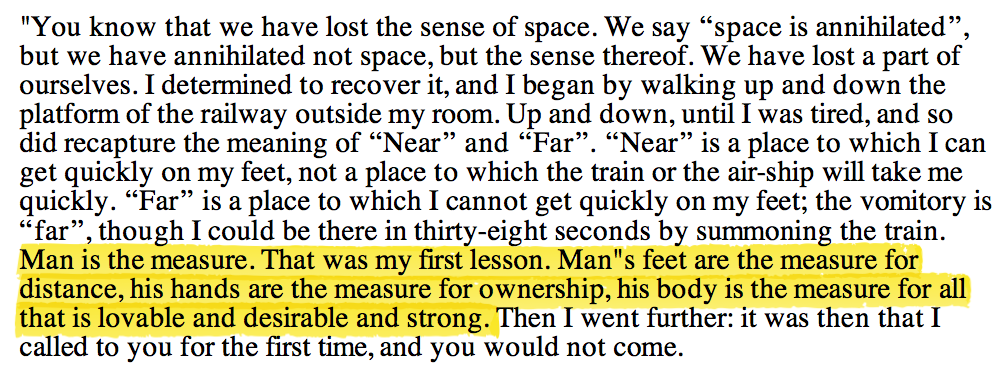E.M. Forester, in his short story, The Machine Stops, predicts—among many things, the prevalent paradigm of technology consumption: as a substitute for experience (or, “first-hand ideas”). Technology, he argues, can stand between man and his life—his “naked” humanity, through its persistent administration of convenient comfort.
In one memorable passage, Kuno, the story’s sort-of protagonist describes the epiphany that helped him see through the veil of techology:
In the dystopian world in which the story is set, the technologists advocate vicarious experience, as it is, they argue, the most purified and filtered. Vicarious experiences as in lectures, recorded music, telecommunications. As the zealot of a lecturer feverishly declared, the second-hand experience that one generation passes to the other would one day produce a “generation seraphically free from any taint of personality.”
To save ourselves from such a reality of saccharine death, we can’t help but follow in Kuno’s footsteps, to use ourselves as a measure of the world. Distance can only be understood by traversing it; and we only own things by holding them.
Kuno found his way out by searching for darkness amidst the artificial light, for it is the only real exception among all the artificiality. Discomfort, at times, is the only real thing there is in one’s own context.


Leave a Reply